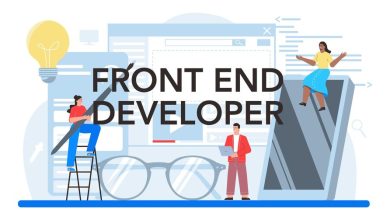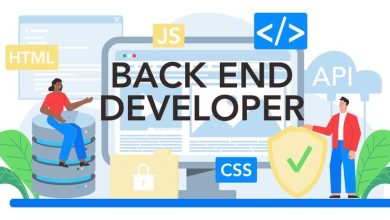
Best Programming Language For Web
Best Programming Language For Web, Selecting an appropriate programming language is essential in the dynamic field of web development in order to create scalable and reliable web apps. A number of considerations must be made, including the application’s particular requirements, team experience, and project requirements. In addition to outlining the necessary knowledge and abilities for creating effective web applications, this article examines the important factors to take into account when choosing a programming language for web development. Buy programming course on Udemy
Selecting the appropriate best programming language for web development is a calculated move that affects the project’s outcome. You can make an informed decision by carefully weighing the needs for scalability, community support, team expertise, and project requirements. Furthermore, developing a strong skill set in back-end programming languages, HTML, CSS, JavaScript, database administration, version control, and web frameworks is essential for creating reliable and effective online applications. For long-term success, keep up with industry trends, always study new technologies, and modify your skill set to meet the changing needs of web development, learn more about Programming things

Choosing the Best Programming Language for Web Development
- Project Requirements: The first step in choosing a programming language for web development is to assess the project requirements. Different languages are suitable for various types of applications. For instance, JavaScript is a staple for front-end development, while languages like Python, Ruby, and PHP are popular for back-end development. Understanding the project’s goals and functionalities is essential to make an informed decision.
- Scalability and Performance: Consider the scalability and performance needs of the web application. Some languages, like C# and Java, are known for their efficiency and scalability, making them suitable for large-scale projects. For smaller projects or prototypes, lightweight languages such as Ruby or Python might be more appropriate.
- Community and Support: The strength of the programming language’s community and support is crucial. A robust community ensures that developers have access to a wealth of resources, libraries, and frameworks. Popular languages like JavaScript, Python, and Java have large and active communities, providing extensive support and documentation.
- Team Expertise: Assess the expertise of your development team. Choosing a language that your team is familiar with can significantly impact productivity and code quality. However, if your team is open to learning new languages, consider options that align with the project’s goals.
Skills and Requirements for Web Development:
- HTML, CSS, and JavaScript: Fundamental to web development, HTML, CSS, and JavaScript form the backbone of every web application. HTML structures the content, CSS styles the presentation, and JavaScript adds interactivity. A strong foundation in these languages is essential for front-end development.
- Back-End Languages: Back-end development involves server-side scripting and managing databases. Popular back-end languages include:
- JavaScript (Node.js): With the advent of Node.js, JavaScript can now be used for both front-end and back-end development, providing a unified language stack.
- Python: Known for its simplicity and readability, Python is widely used for back-end development with frameworks like Django and Flask.
- Ruby: Ruby on Rails is a popular framework for building web applications, emphasizing convention over configuration.
- Database Management: Understanding database management is crucial for storing and retrieving data efficiently. Common database languages include SQL for relational databases (MySQL, PostgreSQL) and NoSQL languages like MongoDB for non-relational databases.
- Version Control: Proficiency in version control systems, such as Git, is essential for collaborative development. Version control allows teams to track changes, collaborate seamlessly, and roll back to previous states if necessary.
- Web Frameworks: Familiarity with web frameworks can significantly accelerate development. Front-end frameworks like React, Angular, or Vue.js enhance the user interface, while back-end frameworks like Express (Node.js), Django (Python), or Ruby on Rails streamline server-side development.
Discover more from Infotech
Subscribe to get the latest posts sent to your email.






